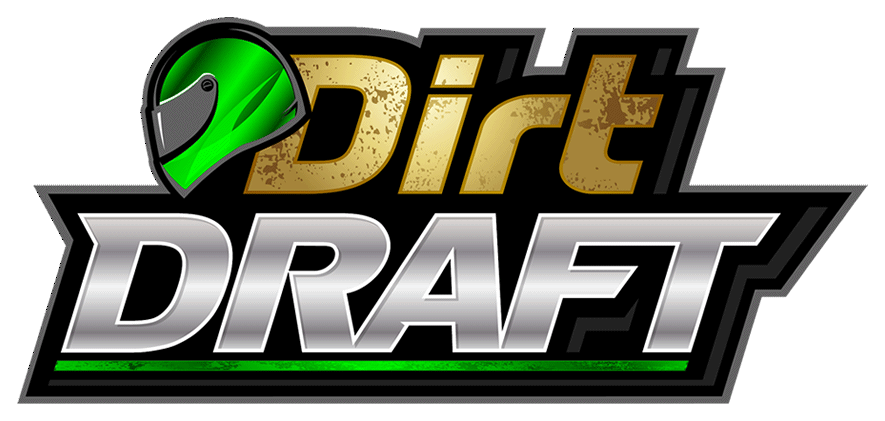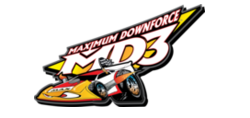
Cherokee Speedway
WoO seeking flagstand consistency with shuffle
By Todd Turner
DirtonDirt.com managing editorGAFFNEY, S.C. (Sept. 2) — Erik Grigsby has spent four seasons telling World of Outlaws Morton Buildings Late Model Series drivers what to do over the one-way radio in his role as race director. Now he’s showing them what to do, as well.
Looking for more consistency in the flagstand, WoO series director Casey Shuman has experimentally shifted Grigsby to the role as flagger to make sure officials are effectively communicating with drivers during events on the DIRTcar-sanctioned national tour.
“It’s something we wanted to try and do,” Shuman said in the pits at Cherokee Speedway before Thursday’s $40,000-to-win Rock Gault Memorial. “I know Erik enjoys doing that stuff and being in the flagstand. I just thought, ‘Let’s try it.’ I don’t mind being up and race directing and having someone down there that’s been with us and he understands all of what we do, it just makes it go pretty smooth.”
A few summer WoO events had minor hiccups when local flaggers weren’t well-versed on how the series operated, Shuman said.
“There’ve been a few instances where they’ve kind of just gone off and started doing their own thing, or what they normally do,” Shuman said. “A few weeks ago we had ’em calling back starts on their own and not (by direction of WoO officials). We’ve been very lucky that it hasn’t been anything huge. It hasn’t been throwing the checkered (flag) a lap early ... it hasn’t caused a huge issue, and probably most people in the stands or the infield don’t really even notice it, but it’s (inconsistencies) that I feel like could turn into a bad situation.
“So if we can utilize Erik and put me up top (race directing in the tower). We’ve been lucky, we’ve been able to add a few new crew guys, officials and stuff, so I’m not trying to scramble and trying to be everywhere. We’ve been able to add a few people, which helps a lot, and it frees me up to be able to go in the booth and (race direct).”
Grigsby, a 33-year-old Canton, Ill., resident who has worked with DIRTcar since 2014 and as WoO’s race director since 2018, said the issues have typically come “at the one-off (tracks) that we only go one time a year. A lot of (flaggers) get confused about our rules and our procedures, and it’s hard to explain to them and get them to understand in one night, what to do.”
Besides calling back their own starts, local flaggers sometimes struggle with how to direct traffic during time trials. And occasionally they’re too quick to throw a yellow flag when WoO officials in the scoring tower are hoping a slowing car either can get off the track to avoid a caution, or to wait on the yellow until the leaders cross the start-finish line so an additional lap can successfully be scored.
With Grigsby well aware of how a race director would like to have the race flagged, he can streamline such situations in series events.
Grigsby’s night in the flagstand at Cherokee marks just the fifth time he’s done it this summer — he’s been away from the WoO circuit working with August’s conclusion of the sister tour DIRTcar Summer Nationals — but he enjoys the role. After all, flagging is where Grigsby got his start in working at racetracks in 2008, first in East Moline, Ill., and then later at Illinois tracks in Farmer City and Peoria.
The series also has the option of having Shuman serve as race director or to let Grigsby play both roles of race director and flagger. It depends on the track size, layout and viewing angles from the flagstand and tower, and Shuman planned to handle race directing duties at the 4/10-mile Cherokee starting with heat race action.
“Because this place is pretty big,” Shuman said. “You know, even from the flagstand, it’s probably pretty hard to see across into turn three, and I’ll probably have a much better view from up in the booth.”
Grigsby has served as race director and flagger simultaneously and is getting into the rhythm of doing both when necessary.
“I guess the biggest thing would be, and it’s really whether you’re flagging or race directing or doing both, it’s still difficult to see the entire racetrack, mainly during the feature,” said Grigsby, who even when race directing alone gets radio support from other officials around the track. “You still need an extra set of eyes, because when you get 24 or 25 cars out there, you can’t watch all of ’em at the same time. I did think it would probably be a little more difficult just because, some of the racetracks we go to, the flagstand is obviously lower than the tower.”
One benefit of race directing and flagging at the same time is there’s no delay if Grigsby decides to throw a caution flag. If an incident occurs, “I can call the yellow on the driver radio and throw the yellow at the same time so I know the (yellow) lights are switched (on) and everything’s happening in sequence instead of a delay either with me calling the yellow or a delay with the flagman throwing the yellow,” he said.
It could get tricky when the right-handed Grigsby is handling more than one flag and trying push a headset button so he can talk on the radio, but he’s prepared.
“I don’t have three hands, but I will usually (drop) one of the flags on the flagstand. I always have the yellow flag in my hand, usually my right hand, because it’s easier to get out if I have to. Say they’re coming to the white flag and I pick it up and the yellow comes out, then I’ll just throw the white down ... I’ll usually throw it on the ground and key up the radio and call the yellow.”
Grigsby has had occasions over the the years when, as race director, he had to point out an error the flagger was making. At last week’s WoO events at Davenport (Iowa) Speedway, that meant Grigsby might’ve been talking to himself.
“I did leave the yellow light on during qualifying at Davenport (for two cars), and we had a caution on the previous set of qualifying and I forgot to shut the light off,” Grigsby said. “I got on the radio and I said, ‘I thought that was the whole point of putting me up here was to eliminate things like that.’ ”
Shuman is pleased with Grigsby’s new role so far, potentially envisioning a staff shakeup to make it permanent.
“I feel like we probably should have a full-time flagman, and maybe we go that direction at some point,” Shuman said. “It just really helps having someone up there that you know and who knows exactly how we do things.”

















































